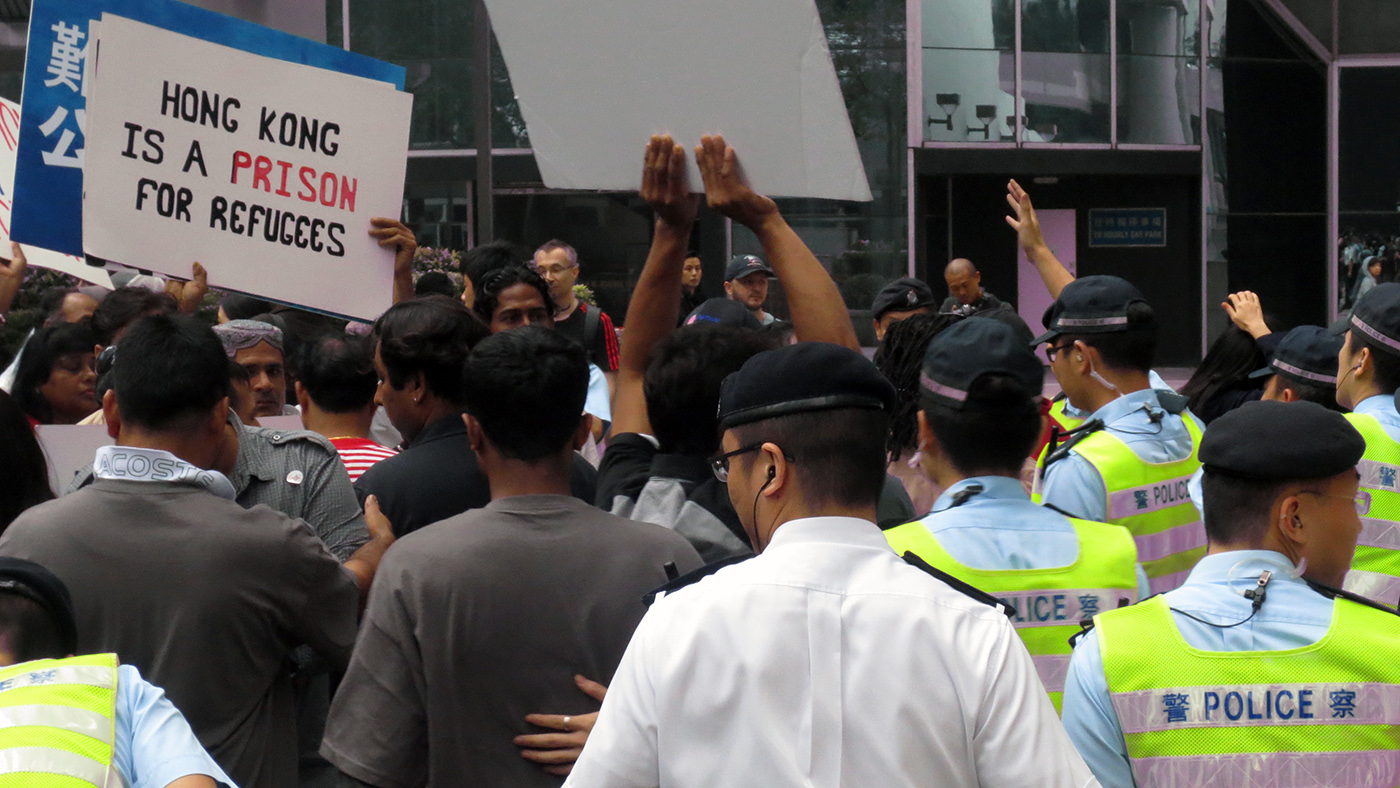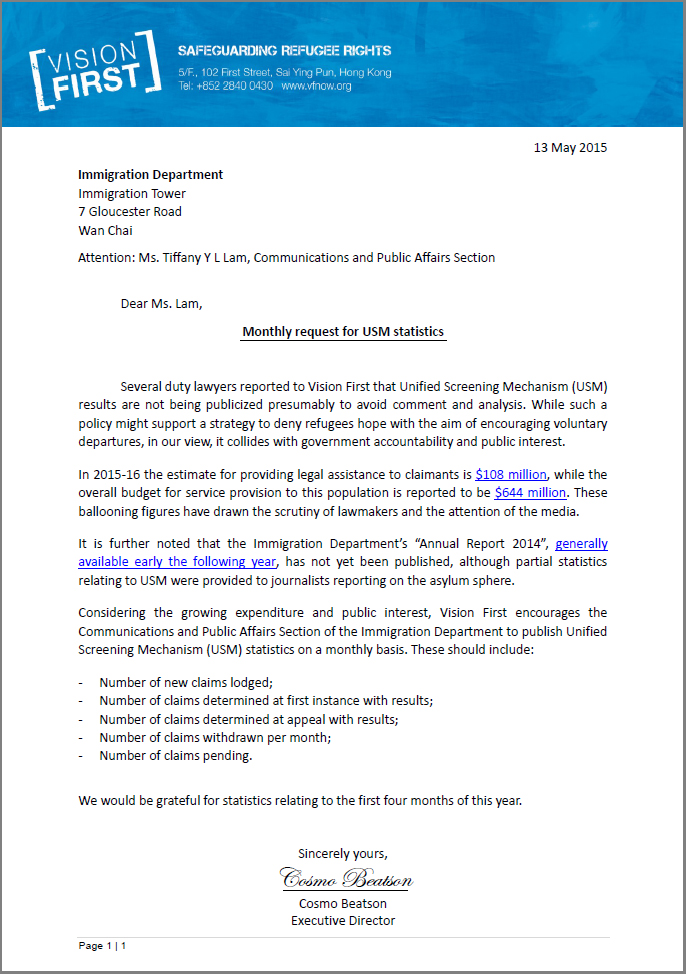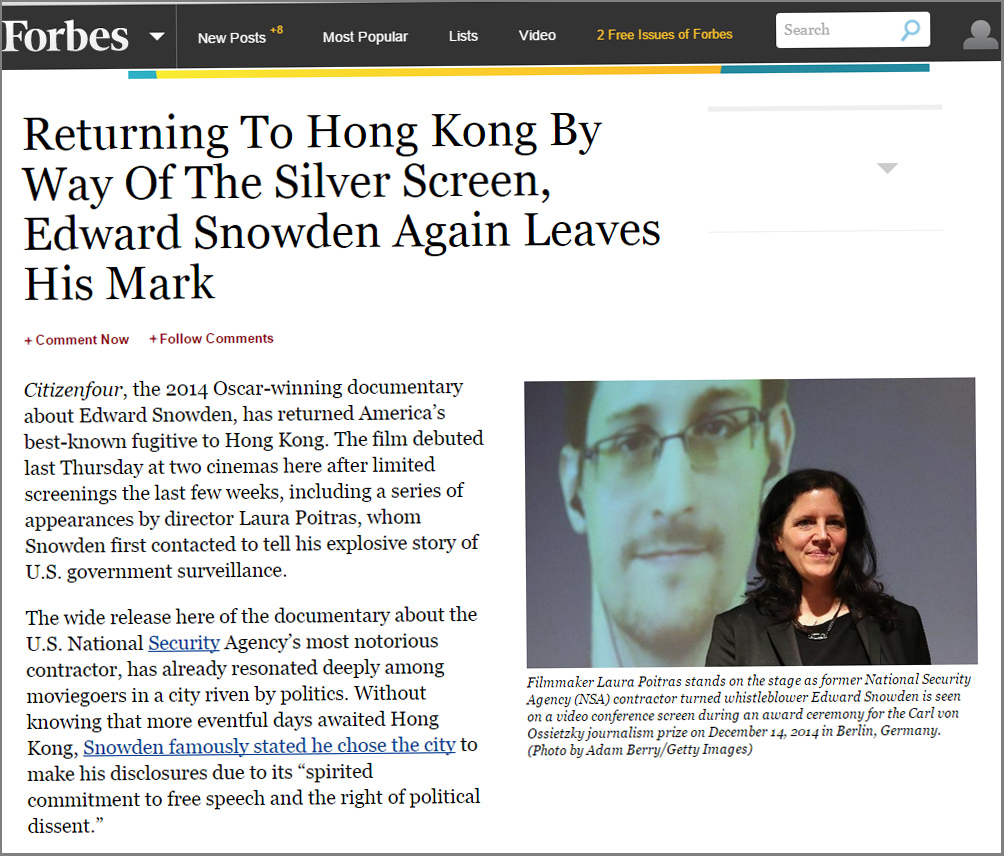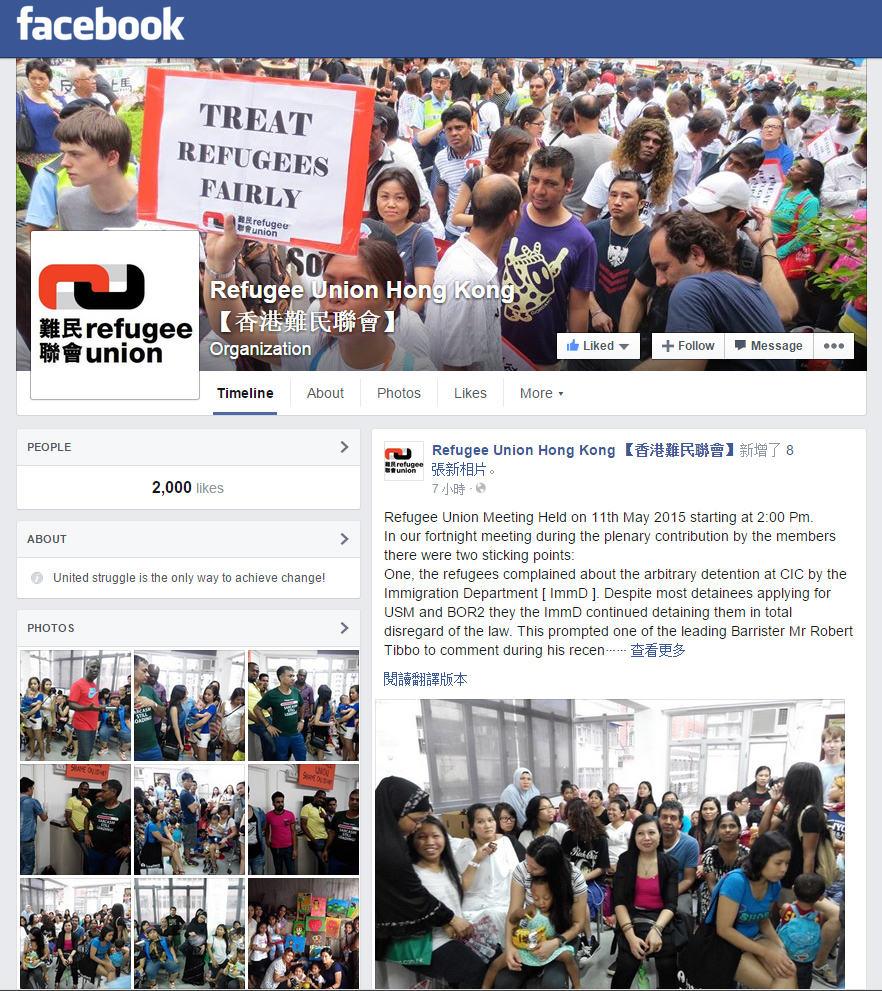Misleading cartoon stokes unnecessary fears
May 18th, 2015 | Media, Rejection, VF Opinion | Comment
The South China Morning Post published this cartoon in its print edition on Saturday, 16 May 2015. The depiction of a refugee tsunami does little to further the understanding of why persecuted minorities abandon their homeland and why neighbouring countries tow their boats back out to sea – rather than offering humanitarian assistance.
In an attempt to counter prevailing myths, we offers a brief extract from “Asylum Seeking and the Global City” (p. 160) written by Mr. Francesco Vecchio, non-executive director of Vision First.
“While the majority of asylum seekers are demonized as abusive illegal migrants and penalized for working illegally, those few who abide by the rules are perceived and helped as the genuine refugees, in turn furthering the legal exclusion of the former.
The lack of agency and constant need of care among the so-called genuine refugees, however, raises public fears about the impact on Hong Kong were the floodgates to be opened, specifically on the official policy of minimal spending on welfare.
Therefore whether they are depicted as a burden or as abusive, deviant characters, asylum seeker typify a new form of socio-legal stratification, at the bottom of which they function as the key means of inducing redistributive benefits and labour flexibility, while at the same time embodying an easy target for public resentment.
A self-fulfilling cycle is thus fashioned, arguably assisting the government to administer and articulate social order through immigration control.”
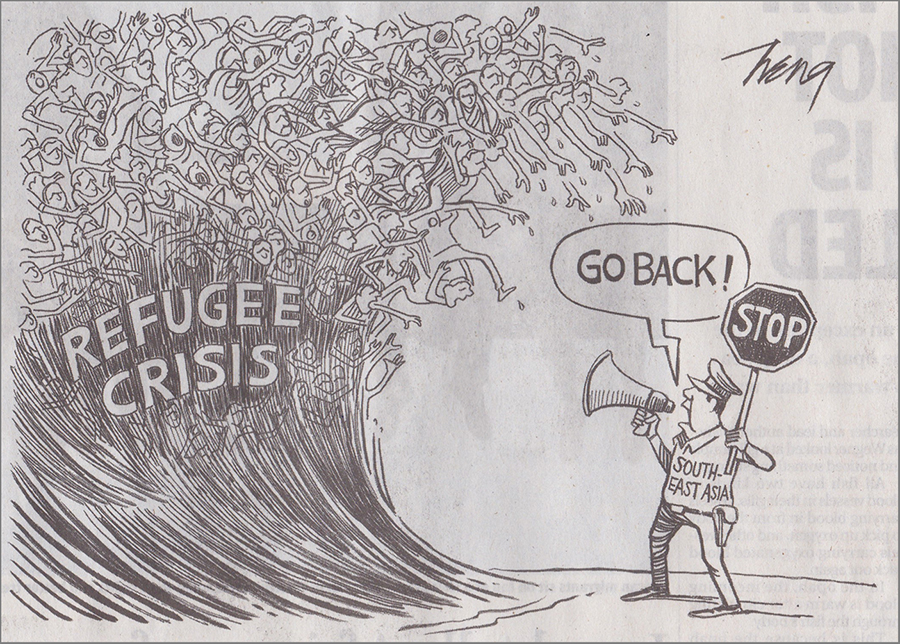
Returning To Hong Kong By Way Of The Silver Screen, Edward Snowden Again Leaves His Mark
May 13th, 2015 | VF Team | Comment
Blue notices on monthly ISS contracts
May 11th, 2015 | Refugee Community, Welfare | Comment
Vision First has learned from the refugee community that unusual ‘Blue Notices’ are being attached to the monthly ISS-HK agreements for provision of services. It is reported that the notices have appeared at all three ISS-HK branches in Prince Edward, Mongkok and Tsuen Wan.
The notices advise refugees to call, “ON MAY 28-29, 2015 TO KNOW WHERE YOU SHOULD REPORT FOR JUNE 2015 CONTRACT RENEWAL.” If it occurred only at one office, one could speculate that rental increase might be forcing a relocation. But why are these notices issued at three branches?
Upon inquiry from refugees, case workers replied that the office concerned was moving. Certainly relocation is hardly uncommon in ever expensive Hong Kong, but what are the odds of three branches ending leases with presumably three landlords at the same time?
It should be noted that June 2015 coincides with the Social Welfare Department starting its new contract for the provision of welfare services to asylum seekers and refugees. The SWD remains tight-lipped about upcoming changes according to the tendered issued in November 2014.
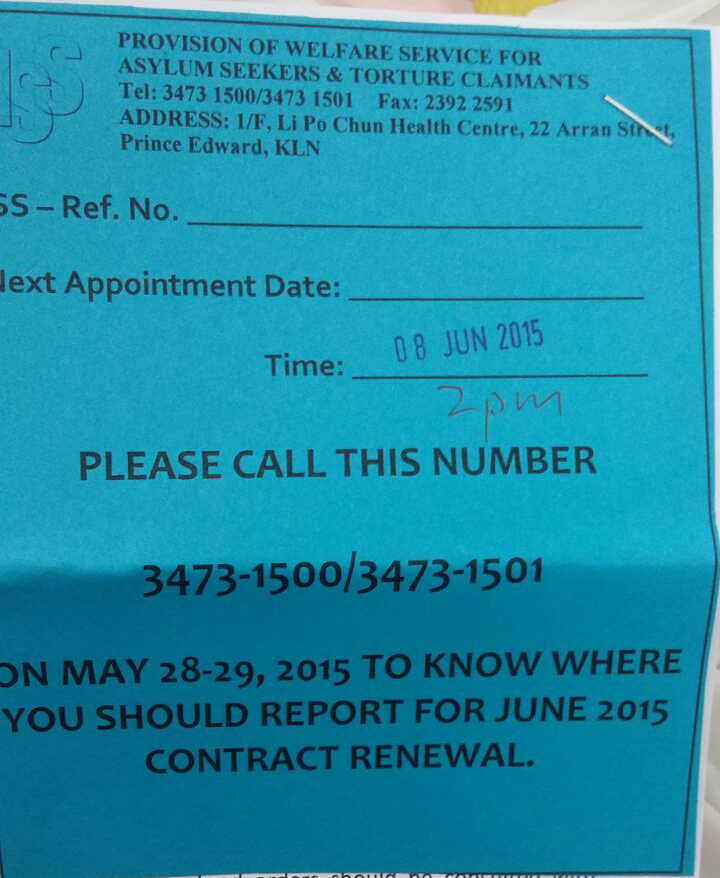
Refugee mother secures rent increase after protesting at SWD
May 11th, 2015 | Housing, Personal Experiences, Welfare | Comment
I am a refugee mother relying on welfare assistance because I am not allowed to work. In 2013 I had a very big problem finding a home so ISS lodged my family in a guesthouse. Safety was a priority as we had been threatened. It was difficult as we could not cook, wash clothes and did not receive any fresh foods. It was very hard for my daughter to eat canned food and noodles every meal.
We looked for a place to stay but ISS only gave us budget of 4500$. On 30 April 2014 we moved out of the guesthouse to an apartment in Hung Hom. It was a studio room with a small kitchen and bathroom. The big problem was the bathroom flooded when there was heavy rain. There were always cockroaches and a terrible smell coming out of the drain.
We wanted to move, but my case worker told us to wait a year to get the deposit back because they would not pay it again. We had to stay in that smelly room until April this year. Two months ago I reminded my case worker about my situation and she confirmed we could find a new place. The only decent rooms we could find were ‘over budget’, according to our case worker.
I had further difficulties because my daughter was accepted at a school in Wanchai, so living in Kowloon was too far away as I didn’t have bus money. My case worker was busy and said she had problems finding homes for many clients. She suggested we stay in the old smelly place for another year! That was unacceptable for us. I threatened to call the media and to protest with the Refugee Union, if she did not help me. I reminded her that in a year she hadn’t visited my room once, despite many promises.
The next day she visited my room with another officer. She noticed that there was no window, that my daughter played on the bed and the bathroom was stinky. She agreed, “You have to move out of this room. It is too small and it is very hot. I approve that you can find a new place”. We went to an agency that took us to see several flats for 5500$ in terrible condition. Later the agent showed me a flat for 6500$ which was OK. But ISS said it was over budget.
As my case worker wanted me to rent a damaged flat for 5500$ and didn’t want to increase the budget, I went to the Social Welfare Department Head-office to complain about the unfair treatment. The next day my case worker called, “OK we will get that 6500$ home for you!” By then the landlord had already rented it, but I was fortunate to find another clean room.
After I protested at SWD, my case worker immediately increased the rent budget and agreed to pay 2 months security deposit (it is usually 1 month), 1 month rent, agency fee and a truck to transfer our belongings. I learned that refugees have to struggle with the system to get better assistance, otherwise case workers will just give the minimum and not care about high rental prices. If I did not protest at the SWD and threaten to return with my Refugee Union comrades, my family would have been stuck in the stinky room, or perhaps homeless.
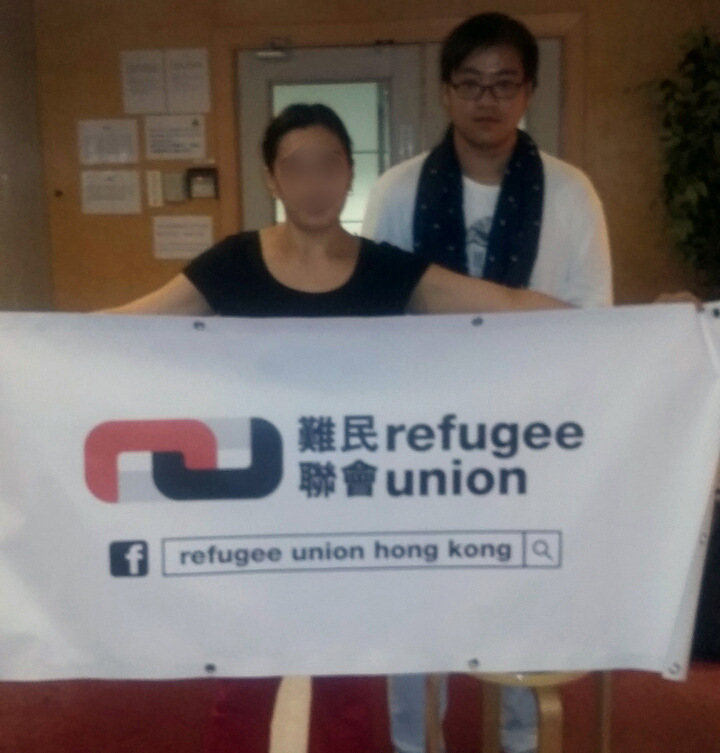
遠走異鄉的故事
May 11th, 2015 | Media, Personal Experiences, Refugee Community, Welfare | Comment
HKBU BJ HONOR PROJECT 2015 BY SANDY YEUNG
Pro bono legal team enters CIC to secure release of refugees
May 8th, 2015 | Detention, Immigration, Legal, Rejection | Comment
May 6th of 2015 is likely to be a day many refugees detained by the Director of Immigration at the Castle Peak Bay Immigration Centre (CIC) will not easily forget. The Refugee Union had taken instructions from over 30 detainees to arrange a legal visit by a pro bono legal team to advise them on their asylum claims, the legality of the asylum claim procedures, conditions and legality of detention and to secure their release. Since a group visit by a pro bono legal team had not occurred for some time, the refugees were hopeful whilst not knowing what to expect.
The legal team comprised Barristers Mr. Mark Sutherland and Mr. Robert Tibbo, both non-executive directors of Vision First, who scheduled valuable time to provide free legal advice to the detainees, some of whom have indeed been unlawfully detained. Counsel were instructed by solicitors Mr. Tam Kam Tong and Mr. Chris Lucas respectively, who were supported by interpreters – everyone acting on a pro bono basis.
The Director of Immigration had been notified of the legal visit to a number of refugees for the purposes of assessing “current detention at CIC and to advise on possible claims under Article 2 of the Bill of Rights Ordinance.” The legal visit was also to focus on the procedure for judicial review. Led by Superintendent W.S. Kwong, Immigration officers and staff were helpful throughout the particularly busy day.
Sutherland remarked, “There are several refugees who have been locked up since they arrived despite having lodged claims for asylum. In some cases, their interviews haven’t even started. This is clearly a prima facie case of unlawful detention and immediate release has been requested.” Tibbo added, “One youth from South Asian was so traumatized by his treatment by the Director of Immigration at CIC that he gave up and withdraw his non-refoulement protection claim. They are being warehoused in a similar way to Australian off-shore detention camps.”
A sense of encouragement grew among refugees from morning till afternoon. The initial uncertainty about the magnitude of events lifted as the first clients returned to the common rooms to share their experiences. Tibbo observed, “It was like a fire was spreading inside CIC. The refugees knew their lawyers were there and they might be released soon. Clients were coming in to the meeting rooms and everyone was fired up and happy – there was a resurgence of hope that could been seen in their eyes and faces.”
After lunch, while inside CIC, Sutherland came across quite per chance two visitors who turned out to be the Justices of the Peace (JPs) assigned to inspect CIC. JPs are the only independent professionals granted unrestricted access to the centre, where they may speak to detainees without appointment and request copies of detention files. The two gentlemen were clearly alarmed by the grave concerns expressed by Counsel which had arisen out of the legal visit. The JPs kindly held two meetings with the legal team on the same day. They requested a full report of the findings. Interestingly, Vision First was in the process of preparing to make contact with the JP’s Office to seek assistance in relation to detention concerns. Sutherland has since conveyed the matter in writing to the JPs in question.
By 5 p.m., the legal team requested the Director of Immigration to immediately release 6 (six) refugees who have been arbitrarily and unlawfully detained by the Director of Immigration. Their release is expected imminently. It is noteworthy that several refugees on the original list had already been released from detention prior to the legal visit.
It is believed that the legal team’s effort will have an impact on the way certain matters are carried out behind the secretive walls of Immigration detention. It now appears clear that refugees are being unlawfully detained in CIC whist they have outstanding non-refoulement claims.
In reality more than occasional pro bono efforts are needed to ensure high standards of fairness in Immigration detention and to hold the Director of Immigration, Mr. K.K. Chan to account. There should be a panel of lawyers assigned either by The Director of Legal Aid and/or The Duty Lawyer Service to meet this crucial need. These lawyers should be on hand at CIC to offer on the spot legal advice to detainees, regarding their detention and with the authority to launch habeas corpus proceedings, if necessary.
The present lacuna in the provision of free legal advice regarding detention plays into the hands of the Director of Immigration and militates towards longer periods of unchecked, unlawful detention.
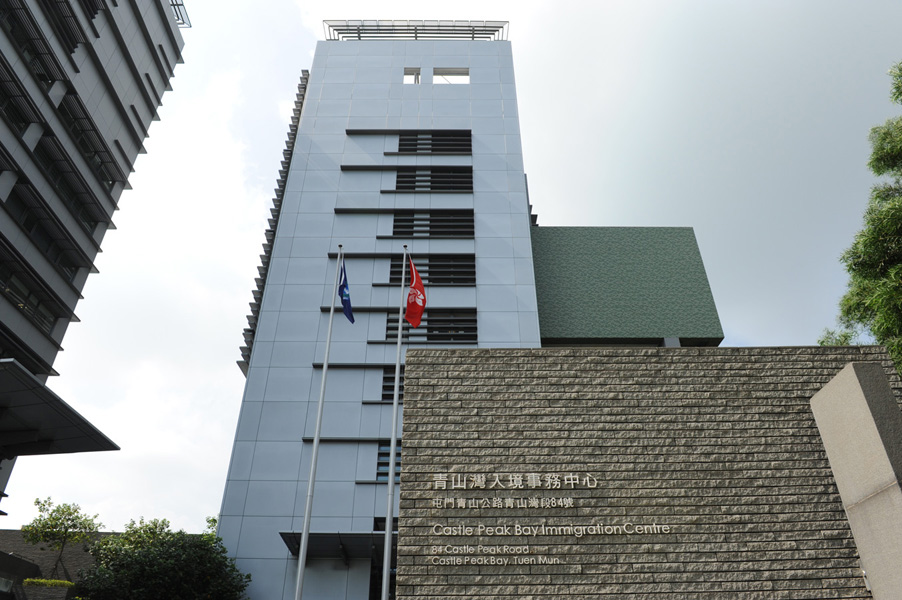
Why is Hong Kong hostile to refugees?
May 6th, 2015 | Detention, Immigration, Legal, Rejection, VF Opinion | Comment
It was hard to answer the question of a visitor to Vision First who sought to understand the caustic environment navigated by refugees with a slim chance of securing protection in an indifferent city. Ironically, Hong Kong has long had a history of welcoming refugees (1.5 million between the 1930s and 1970s), but its sympathy and support of persecuted foreigners dwindled regrettably as residents became richer.
The government mantra is well rehearsed, “Non-refoulement claims lodged under the USM are not asylum claims. The Refugee Convention and its 1967 Protocol have never applied to Hong Kong. The Government maintains a firm policy of not granting asylum to or determining the refugee status of anyone. Our policy objective is to screen … and to remove rejected claimants from Hong Kong as soon as possible. Lodging a claim does not change the fact that non-refoulement claimants are illegal immigrants or overstayers.”
The results of such a policy appear skewed towards removal. Between 2009 and 2014, Immigration screened 5581 claims and substantiated just 25. It is noteworthy that in 6 years Immigration failed to grant protection to a single asylum seeker among 2166 Pakistani, 1760 Indians and 1237 Bangladeshi. Hong Kong has never protected a claimant from these countries. By contrast, in 2013 Australian protection grants produced very different results: Pakistani 80.4%, Indians 6.3% and Bangladeshi 42.7% at first instance (p. 20). Astonishing it is that Pakistani scored 94.9% including appeals (p. 30). How does it compare to Hong Kong’s achievements?
Despite profuse assurances to the contrary, it appears that Hong Kong Government has abdicated its obligation to protect refugees and has instead prioritized rejection and removal. An elaborate performance by 480 lawyers ‘who have received specialised training’ has done little to improve the effective zero percent acceptance rate. To the contrary, the authorities are focused on cost-cutting to reduce the $644 million spent on claimants, including legal aid up 86% last year.
Stringent immigration control and deterrent welfare were ingeniously deployed to deter asylum seekers from remaining in Hong Kong, but their number doubled in 2014 to 9618, reflecting worrying global trends. Immigration is presumably feeling the pressure and this year plans to determine 2000 claims, which might fail to reduce the total ‘with new claims coming in at more than 300 per month since early 2014.’
In an obfuscated environment of rejection and expediency, is it possible that some refugees might be removed or deported to their country of origin at a risk of life and limb? It is hard to make factual assessments, as the Castle Peak Bay Immigration Centre (CIC) remains off-limits to rights advocates and detainees may only be visited by appointed lawyers. Refugees denied release on recognizance are unlikely to enjoy adequate legal advice, or second opinions on their claims.
In this potential black hole, can Immigration be trusted to adhere scrupulously to high standards of fairness, respect fundamental refugee rights and assess claims in a non-adversarial manner as required by law? Acting on a pro bono basis, barristers Robert Tibbo and Mark Sutherland, non-executive directors of Vision First, visited CIC on 6 May 2015 to take instructions from 24 detainees who sought the assistance of the Refugee Union against imminent removal orders. It was reported that 5 had already ‘left from Hong Kong International airport’ with no further details.
